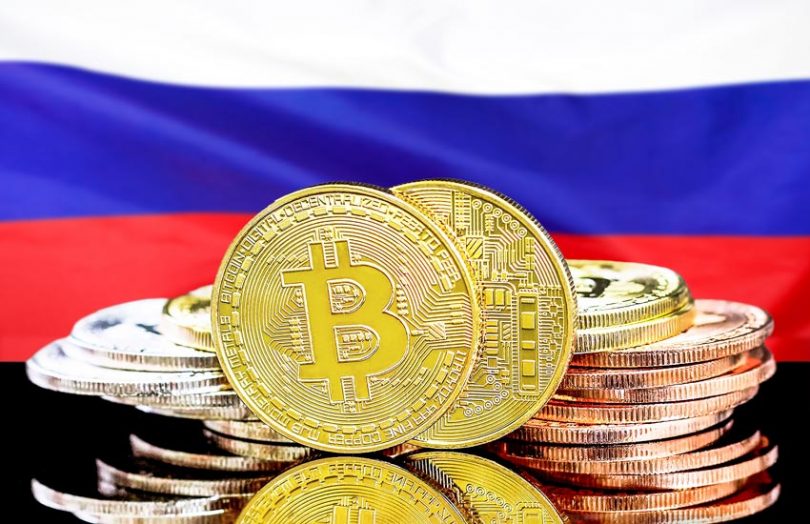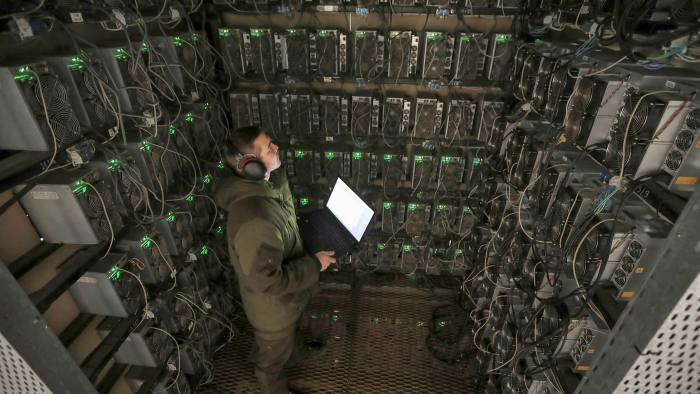Eight days into the Russia-Ukraine conflict and Russian forces are yet to gain complete control of Kyiv, the Ukrainian capital. With US and NATO allies imposing severe financial sanctions on Moscow, experts have already started arguing whether Vladimir Putin miscalculated the financial implications of launching a direct assault against Ukraine. The Russian economy is already reeling under the sanctions imposed by Western nations following the annexation of Crimea in 2014. As the Russian Ruble struggles, financial experts are ascertaining the role of crypto in minimizing the impact of western sanctions on Russia.
According to a report, sanctions imposed by western nations cost Russia $50 billion a year. The Russian economy has been severely affected due to these sanctions, growing by merely 0.3% per year since 2014, against the global average of 2.3%. The US and its allies have bombarded Russia with fresh sanctions after the latter’s aggression against Ukraine. SWIFT ban, which is often referred to as the financial nuclear weapon, is going to hurt the Russian economy the most. The European Union is all set to cut off seven major Russian banks from SWIFT. The impact of the fresh wave of economic sanctions on Russia can be assessed from the catastrophic fall of the Russian ruble. The ruble fell 41% to 117 per the US dollar, forcing the country’s financial institutions to take drastic measures like doubling the interest rate by the Bank of Russia from 9.5% to 20%. But, can drastic measures like this help Russia tackle the economic crisis that it is set to face?

Source: https://www.pymnts.com/news/international/2022/why-removing-russia-from-swift-wont-be-simple/
Some experts think the Russian leadership anticipated the repercussions of attacking Ukraine, including the severe economic sanctions from the West. “Russia has had a lot of time to think about this specific consequence. It would be naïve to think that they haven’t gamed out exactly this scenario,” said Michael Parker, the head of anti-money-laundering and sanctions practice at the Washington law firm Ferrari & Associates. Several reports have highlighted the working principles of cryptocurrencies while arguing that Moscow can use crypto to evade economic sanctions. But, does the argument has merit?
U-turn on Crypto Ban
Despite mulling a ban on cryptocurrency usage and mining till January 2022, the Russian authorities decided to regulate the space weeks before attacking Ukraine, dispelling the fears of a ban. What could be the reason behind this sudden change of mind? Experts have been arguing that crypto could be the saviour for Russia’s ailing economy. With the clouds of a full-scale war looming, the move to regulate crypto could be a well thought out strategy to minimize if not neutralize the impact of economic sanctions from the US and other western nations.

Source: https://www.ledgerinsights.com/russia-restrict-circulation-cryptocurrency/
Can Crypto save Russia’s sinking economy?
If Russia is effectively cut off the SWIFT payment system, major Russian financial institutions will be unable to send or receive cross-border payments. The move aims at cutting Russia off from global trade. Since the US and other Western countries dominate the decision-making process, cutting Russia off global trade is very much possible. Unlike the traditional global transaction system, crypto is decentralized. Russia can choose crypto as an alternative for cross-border payments. Binance, the world’s biggest crypto exchange, refused to block all Russian accounts, despite Ukraine’s request. “To unilaterally decide to ban people’s access to their crypto would fly in the face of the reason why crypto exists,” Binance said. Other major crypto exchanges, including Coinbase, also refused to take the unilateral decision. Meaning Russians holding their funds on crypto exchanges are largely safe from the economic consequences of the sanctions.

Source: Reuters
Russians could try converting all their money into Bitcoin or any other cryptocurrency, but the crypto market is highly volatile and completely relying on it can result in both people and government institutions losing their money. The Russian government has also started the trials of its central bank digital currency (CBDC) named the ‘digital ruble’ to decrease the dependency on the US dollar. But with such serious sanctions in place, Russia is forced to explore an alternative within the crypto space.
Crypto Mining Could Help
Solely converting all the money to crypto would be an impractical move, given the volatility. Mining is another option that Russia could explore to mitigate the risk of NATO sanctions. In fact, Iran, which has been at the receiving end of sanctions for quite some time now, has heavily invested in Bitcoin mining to recover from the economic crisis. According to a report by Elliptic, 4.5% of all Bitcoin mining takes place in Iran. As of January 2021, bitcoin miners in Iran were consuming up to 600 MW of electricity. Iran has been successfully using bitcoin mining to evade sanctions and evade millions of barrels of oil. A report by the Iranian Presidential Center for Strategic Studies, a think tank attached to the Iranian President’s office, claims that the government could generate US$2 million a day and $700 million a year in direct revenue from cryptocurrencies. The report further states that revenues from receiving transaction fees for the entire bitcoin network would generate $22 million annually for the government.

Source: Financial Times
Since Russia is a major oil exporter, it could adopt the Iranian model to evade the sanctions and receive payments in crypto. Fuels and energy products account for over 60% of Russia’s net exports. Finding an alternative to the US dollar for receiving payments can catapult Russia’s economy out of the crisis. Also, a significant share of revenue can be generated from transactions fees for the mining network. Whether Russia uses this option aggressively will be interesting to see.
Decoding the Crypto Rally Amid the War
Contrary to the popular narrative, the ongoing Russia-Ukraine crisis has had little impact on the crypto market in general and Bitcoin in particular. In fact, unlike the stock market, Bitcoin has seen a decent rally during this period. While the S&P plunged nearly 2% on Tuesday, the price of Bitcoin surged by nearly 20% over the past two days. The use of cryptocurrencies has only increased during the ongoing conflict with the Ukrainian government and other volunteer organizations within Ukraine accepting more than $30 million worth of crypto donations. The global cryptocurrency market capitalization has also bounced back to $2 trillion over the past two days. The price of Bitcoin breached the $43,000 mark after trading below $39,000 over the past several weeks. Ether, the second-largest cryptocurrency in terms of market capitalization, has also surged more than 10% over the same period.

BTC weekly price change, source: TradingView
Veteran investor Mark Mobius sees Russians buying cryptocurrency as the reason behind the recent rally. “I would say that’s the reason why bitcoin has shown strength now — because the Russians have a way of getting money out, getting their wealth out,” said Mobius. The statement of TRM Labs’ Ari Redbord strengthens the argument that Russia could use crypto to evade the sanctions.
The ongoing geopolitics developments have had little impact on the prices of crypto. Despite the volatility, Russians are aggressively investing in crypto to save their funds. Whether Russia can benefit from investing in crypto to minimize the impact of sanctions would be a learning for the entire world.

